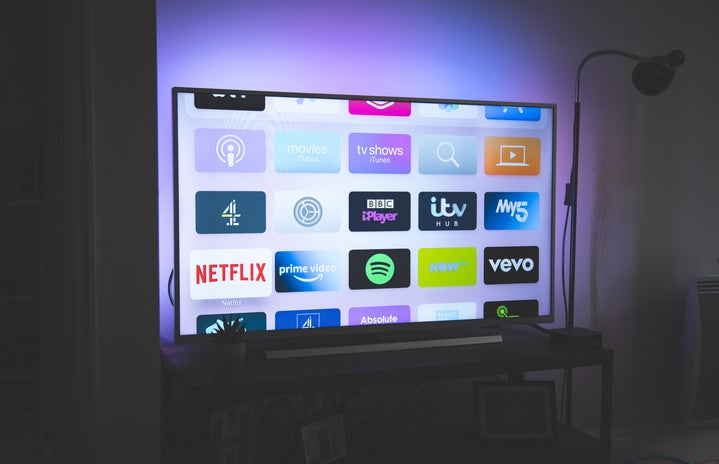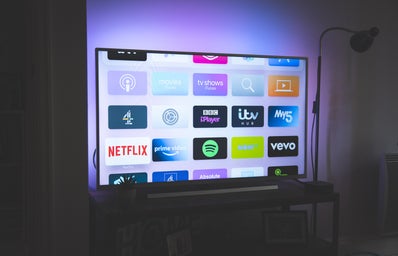‘Reality TV is back!’ This is what I exclaimed last week when watching the revived Big Brother series on ITV. Having missed the first few weeks, I started watching the series during my uni break and found myself having binged 2 weeks’ worth of reality TV in a matter of days – I was hooked! It made me question why we love this type of TV, Big Brother in particular.
If we think back to the original Big Brother that was on Channel 4, it began as a sort of ‘social experiment’ with the name an obvious reference to George Orwell’s novel, 1984, establishing the dystopian vibes that we would come to witness. The aim was to see what would happen if they put strangers in a house together, cut off from the outside world, and being watched at every hour of the day. Naturally, this caused a lot of drama, which the insatiable audiences of the early 2000s devoured. However, can we really say that we in 2023 are any different?
Here we come to my main point: we love Big Brother because it is a distillation of ‘real’ life. We see a group of diverse people who probably would never interact with nor be in the same room in the outside world, put together in one house. This makes it different from some of the other big reality TV shows that have become popular recently, such as Love Island. Now, don’t get me wrong I enjoy Love Island, but I will be the first to admit that it can become boring or even laborious to watch the show as it isn’t always reflective of real life and at times seems unrelatable. We want to see ‘real’ people having to interact with other ‘real’ people, something that just seems impossible in a show like Love Island, where the goal is to be as attractive as possible in order to find a relationship. Big Brother, instead, emphasises personalities, and it is the exploration of these personalities which invites the viewers to become invested.
Now, back to the current series, where there are currently 2 main storylines…
The first being the emotionally charged gay love triangle between tory boy Henry, hippy doctor already in an open relationship, Matty, and lawyer from Scunthorpe, with a fake Downton Abbey accent, Jordan (aka the love of my life). This has been all anyone was talking about on social media and honestly, despite its obvious ridiculousness, there was something refreshing about seeing queer relationships so normalised on mainstream television. Especially after peoples cries for a queer Love Island, the public’s reaction showed why the format of Big Brother is so satisfying to watch. Anything can happen, and it all depends on the people they have chosen to put in the house.
The other big narrative was the highly anticipated double eviction where Trish, Noky, Dylan, and Paul were all nominated. This was significant because both Trish and Noky are dark-skinned black women and had been targeted by members in the house and particularly by Dylan and Paul. Noky had been accused of being ‘fake’ because she was poised and would not let herself be labelled as ‘aggressive’. In contrast, Trish would stand up for herself and others. In turn she was labelled ‘aggressive’. This demonstrated microaggressions being used in real time, as however Noky and Trish behaved, they would have been criticised because of how black women have been stereotyped and perceived. To me, this is when Big Brother is at its most interesting, despite also being deeply saddening, as it is a microcosm of our society. However, on a positive note, following these interactions, Dylan and Paul were both evicted and came out to boos – the like of which I have not seen in a long time! The crowds were passionate and there seemed to be genuine anger at how Noky and Trish had been treated. I have never been so shocked by the British public, who to say the least have a questionable history with public votes. To see some justice, especially for Trish who was labelled ‘aggressive’ and ‘strong’ on many occasions, was genuinely heartwarming and I had never felt as invested in a TV show.
I wondered if one of the reasons for this was because of the style of voting. Unlike Love Island and other shows, Big Brother works on a basis of voting to evict. In other words, you are choosing who you want to leave, not who do you want to save. I think this means we, as the public, have more agency; it is a more active action to pinpoint one person you don’t like as opposed to hoping that the rest of the public wish to save who you want to save. Although this, in my opinion, leads to more investment from the audience, it can also drift into overinvestment and sometimes harmful effects on the contestants. Which is why when you step back from watching reality TV you feel like you have been sucked into an entirely different world, as we are also participants in this social experiment. It is a safe way for us to express outrage and dislike for people without confrontation or consequences ourselves. It allows us to explore our morally dubious side, our desire to condemn and publicly shame. And then we turn off the TV, forget about these people we so desperately cared about and go on with our lives.


